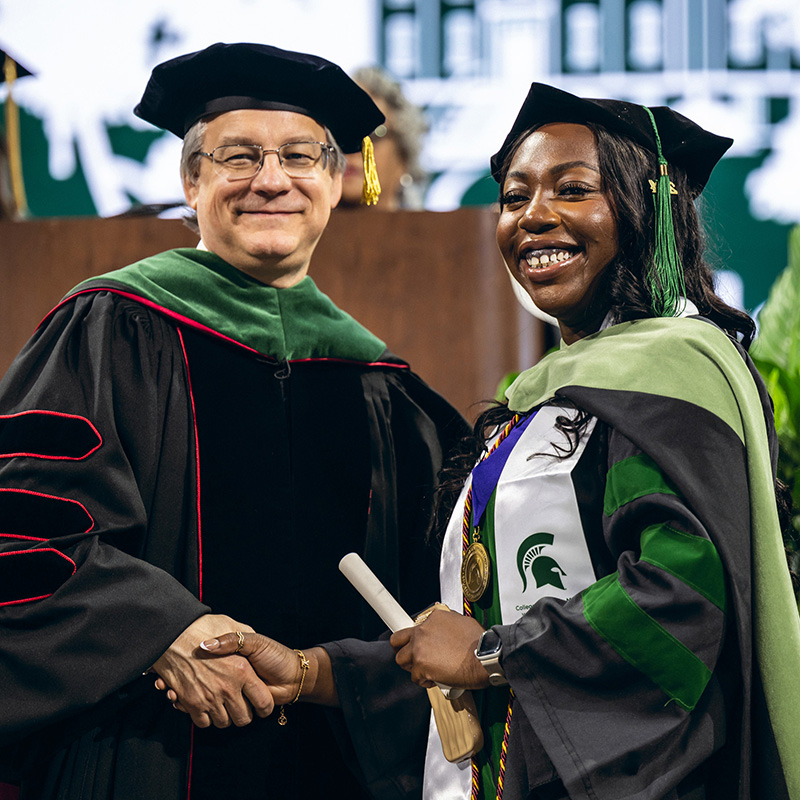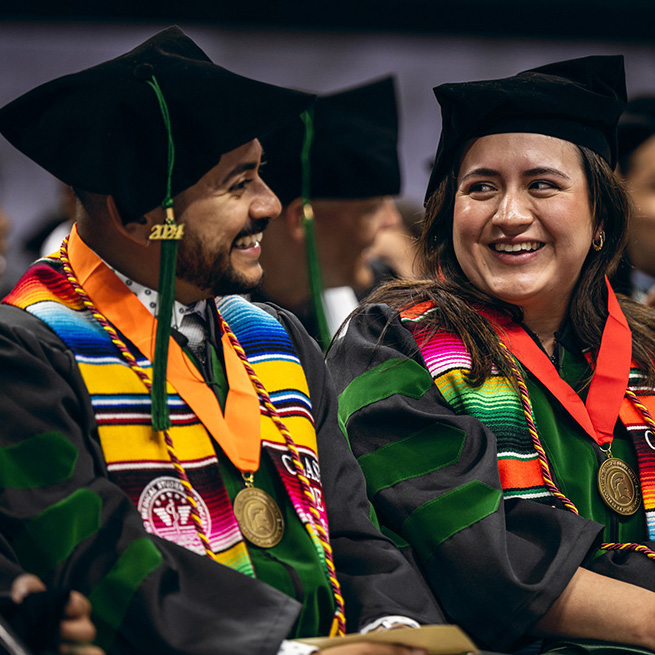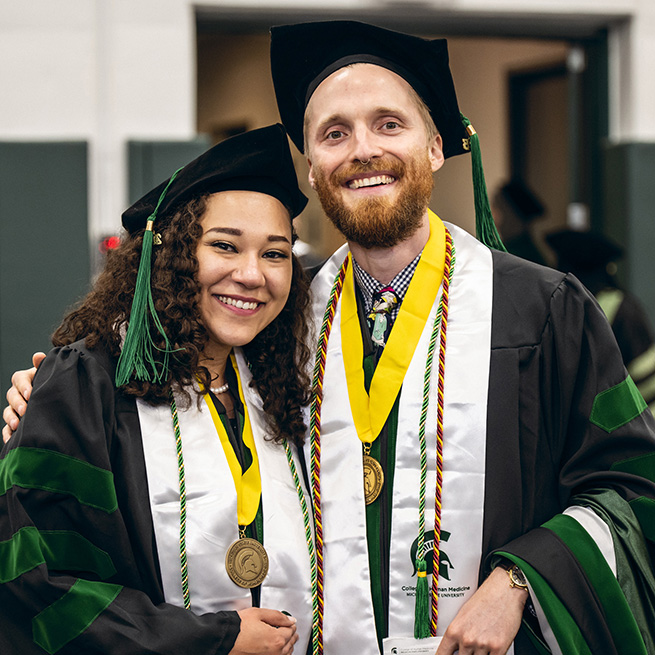Becoming Spartan MDs: Class of 2024 embarks on next chapter of medicine
May 6, 2024
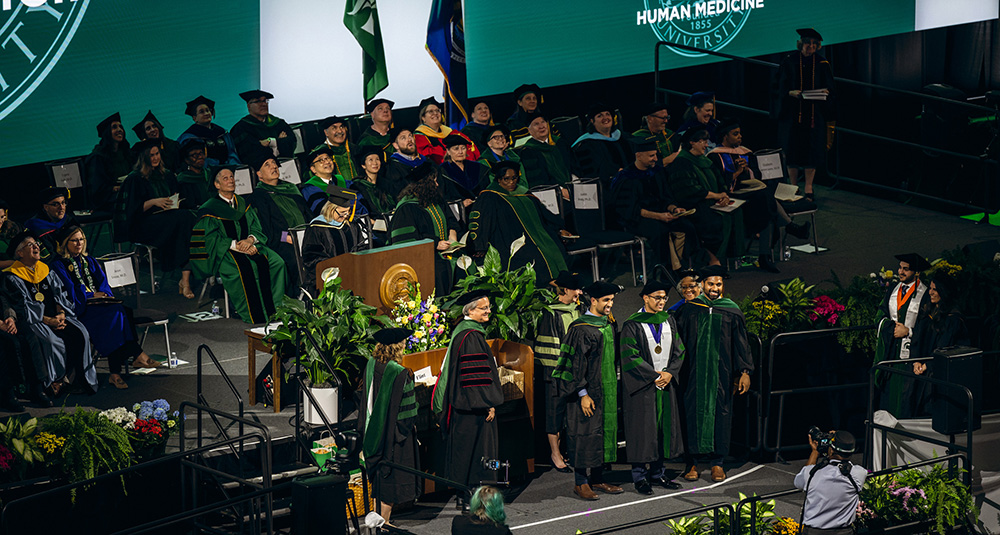
Donna Tran was 19 when her father was diagnosed with a brain tumor. Kyle Burton was five when his grandmother began chemotherapy for a rare intestinal cancer and moved in so his mother could care for her.
Both Tran and Burton are new graduates from the College of Human Medicine and, motivated in part by personal experience, plan on careers helping patients and families dealing with cancer.
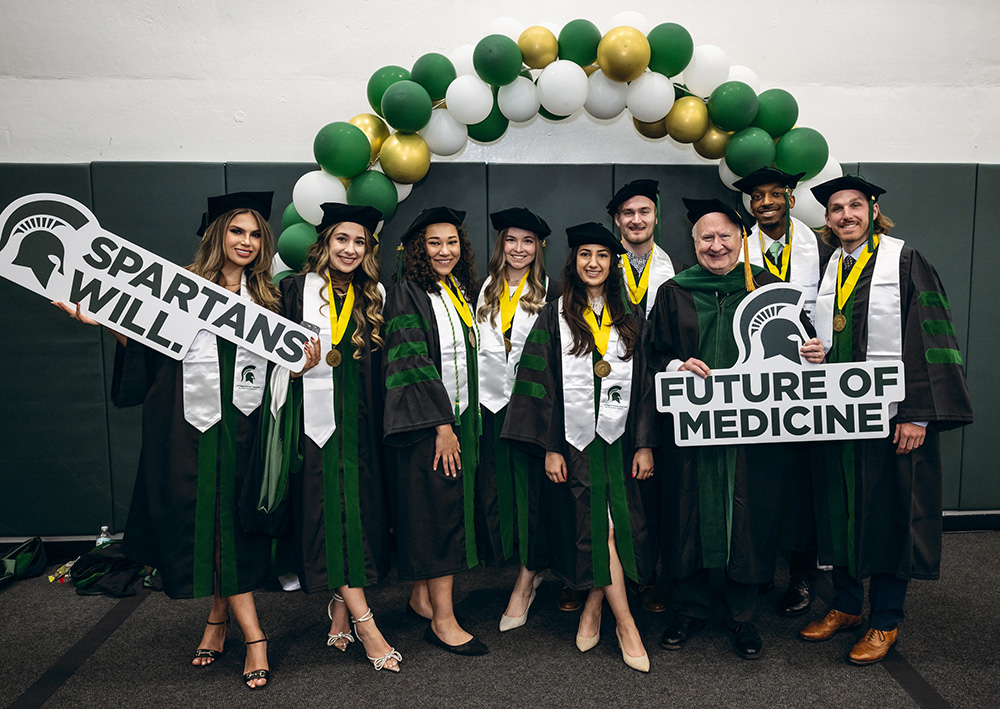 Their dedication is typical of the College of Human Medicine Class of 2024. Dean Aron Sousa conferred the degrees of the 181 graduates on May 4, of which, half of the new Spartan MDs will stay in Michigan.
Their dedication is typical of the College of Human Medicine Class of 2024. Dean Aron Sousa conferred the degrees of the 181 graduates on May 4, of which, half of the new Spartan MDs will stay in Michigan.
The college had three graduates who participated in the military promotion ceremony, including one Navy sailor who was promoted to the rank of Lieutenant and two Army soldiers who were promoted to the rank of captain. Thirty-seven percent of the class will practice primary care, including family medicine, internal medicine, and pediatrics. Others will specialize in diagnostic radiology, emergency medicine, psychiatry, and other fields. All will enter residency in July.
In choosing careers helping cancer patients, Tran and Burton share an interest with this year’s commencement speaker, Teresa K. Woodruff, PhD. Dr. Woodruff recently served as interim president of MSU and is an internationally recognized expert in reproductive science who coined the term “oncofertility” to describe the merger of oncology and fertility preservation.
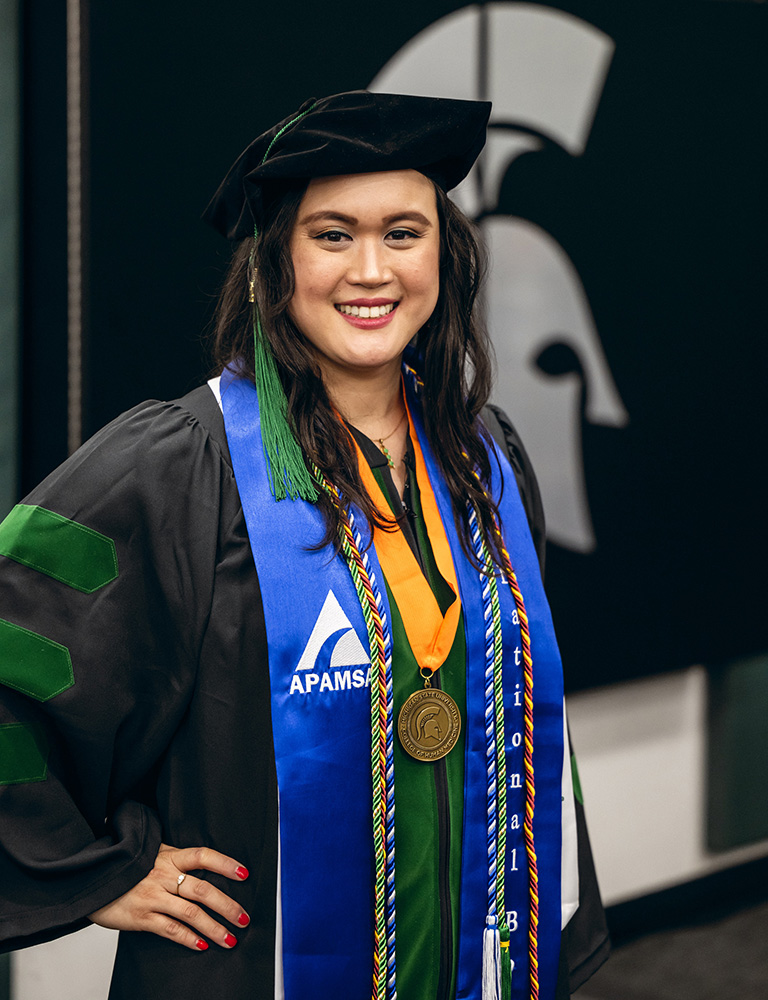 Tran had not considered a career dealing with cancer until after her father’s diagnosis.
Tran had not considered a career dealing with cancer until after her father’s diagnosis.
Looking back, “I didn’t understand how serious it was,” she said. “No one in our family had had a brain tumor, and we had never had to navigate the health care system.”
Her father survived, but now “I want to help people out who are going through what we went through,” she said.
Following graduation, Tran will begin a four-year residency in psychiatry at Stanford University in her home state of California. Eventually she hopes to specialize in psycho-oncology, a field combining the physical, psychological, social, and behavioral aspects of cancer care for patients, their families, and caregivers.
“We are very often focused on the physical aspects of cancer,” overlooking the emotional needs of patients and families, Tran said. “Cancer can affect anyone of all different ages and backgrounds.”
As a young child, Burton saw how his grandmother bravely faced cancer and eventually died from it. He saw how his mother, a nurse practitioner, cared for her cancer patients in Sault Ste. Marie, his hometown.
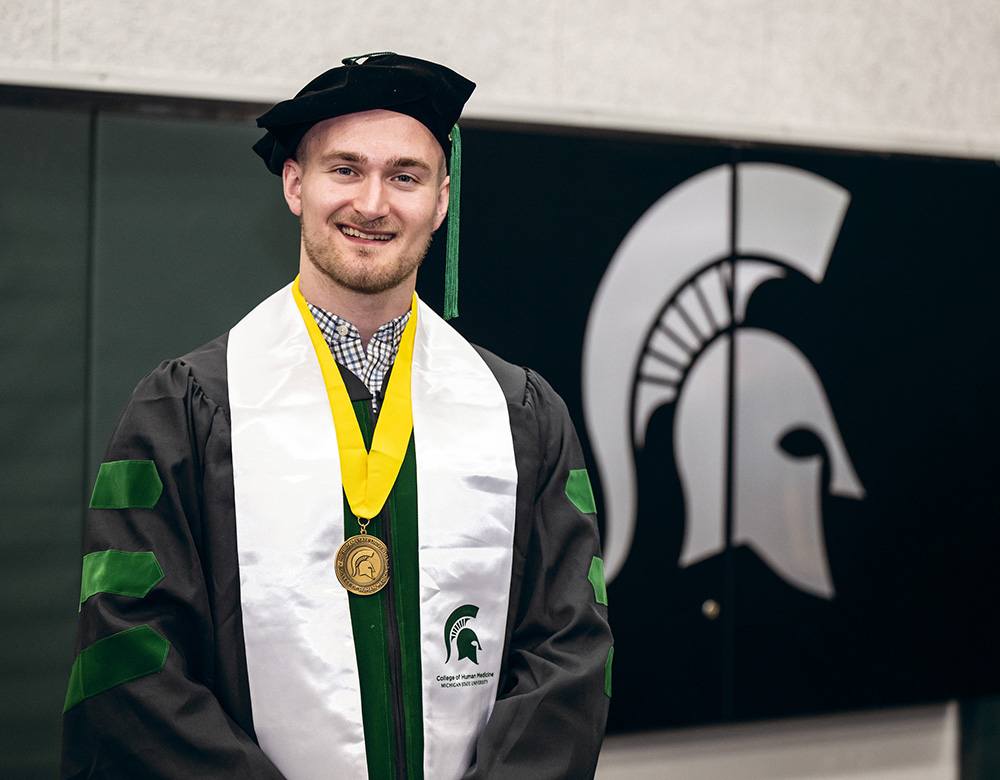 “I saw the satisfaction she had in her work,” Burton said. “She is the kind who gives her personal phone number to her patients.”
“I saw the satisfaction she had in her work,” Burton said. “She is the kind who gives her personal phone number to her patients.”
That inspired him to go into medicine, with an eye eventually on hematology/oncology. His older brother is a post-doctoral student in analytical chemistry in California, and his younger sister is in premed at Lake Superior State University. But Burton is especially proud of another sister who was born with cerebral palsy, leaving her unable to walk without assistance.
“She is the most caring person I know, and she is excited about my brother and sister and me,” he said. “She takes pride in all the things that we do. That’s had a lasting influence on me.”
Having completed his studies at the college’s Upper Peninsula Region Campus, Burton plans on returning to the U.P. after his internal medicine residency at the University of Wisconsin. “I want to give back to the community that raised me,” he said.
His four years of medical school gave him “a ton of hands-on experience,” he said. “I’ve gotten all the training I needed to be prepared for residency. I feel grateful for that.”
Tran is equally grateful. After her second year of medical school, she took a gap year to earn a Master of Public Health degree from Johns Hopkins University. She had an internship with the U.S. Senate Committee on Health, Education, Labor, and Pensions, and she served a term as national president of the Asian Pacific American Medical Student Association.
Her degree from the College of Human Medicine has a deeply personal meaning, Tran said.
“I’m just so appreciative of the opportunity,” she said. “MSU was the perfect school for me to learn and thrive. They really believe in their students. Whatever MSU is doing, they’re doing it right.”
